Last updated 28 February 2022
The thought, or reality, that your child has the Omicron variant of COVID-19 can be really worrying. We take a look at the latest advice and tips for looking after a child with COVID-19, when to seek help, and how to minimise spread to others.
Common Omicron symptoms in children
Currently, the most common symptoms of COVID-19 in children is a runny nose, cough, fever, and headache. Tiredness, vomiting, diarrhoea, tummy pains and muscle aches are also common.
Getting tested
If your child is showing any of the common symptoms of COVID-19 you should get them tested. Call your GP, Healthline on 0800 358 5453, your iwi health provider or your Community Testing Centre. You can find a list of testing services here.
Caring for your unwell child
If your child is generally well and happy they do not need specific treatment. COVID-19 is a viral infection and as such does not respond to antibiotics. However, if your child is feeling miserable and uncomfortable with their symptoms, paracetamol and/or ibuprofen can be given according to the dosage instructions*. You can either give them together or staggered – it’s up to you.
*Always read the label. Use only as directed. Incorrect use of pain relief could be harmful. If symptoms persist consult your healthcare professional. Do not give pain relief to babies under 3 months of age. Seek medical advice for children under 12 months of age.
Your child may not be as interested in food and drinks for a few days. Being off their food for a short period is not of great concern, however keeping their fluids to at least half their usual intake is important. For older children, a drink that is half apple juice and half water might be tempting. Iceblocks are also an easy way to get fluids into your child.
When to seek medical advice
Seek immediate medical help for your child if you notice your child:
- appears to be getting more unwell
- is not interested in food or drinks for a period especially if they have had vomiting and /or diarrhoea
- has a fever (a temperature of 37.5°) for more than five days. In babies under six months old any temperature over 38.5°C should be investigated as soon as possible.
- has a dry cough and/or shallow or hard breathing
- appears sleepy, floppy or limp
- is uncomfortable and unhappy even after pain relief
- has symptoms that last more than two weeks
- or if you are worried
The Doctors at Starship’s Emergency Department have put together a helpful video on how to look after your child with Covid-19 that you can view here.
Minimising the spread
Once one member of your household has tested positive, you are all required to stay home for at least 10 days, unless it is to seek urgent medical help, or they are a critical worker (special conditions apply – find out more here).
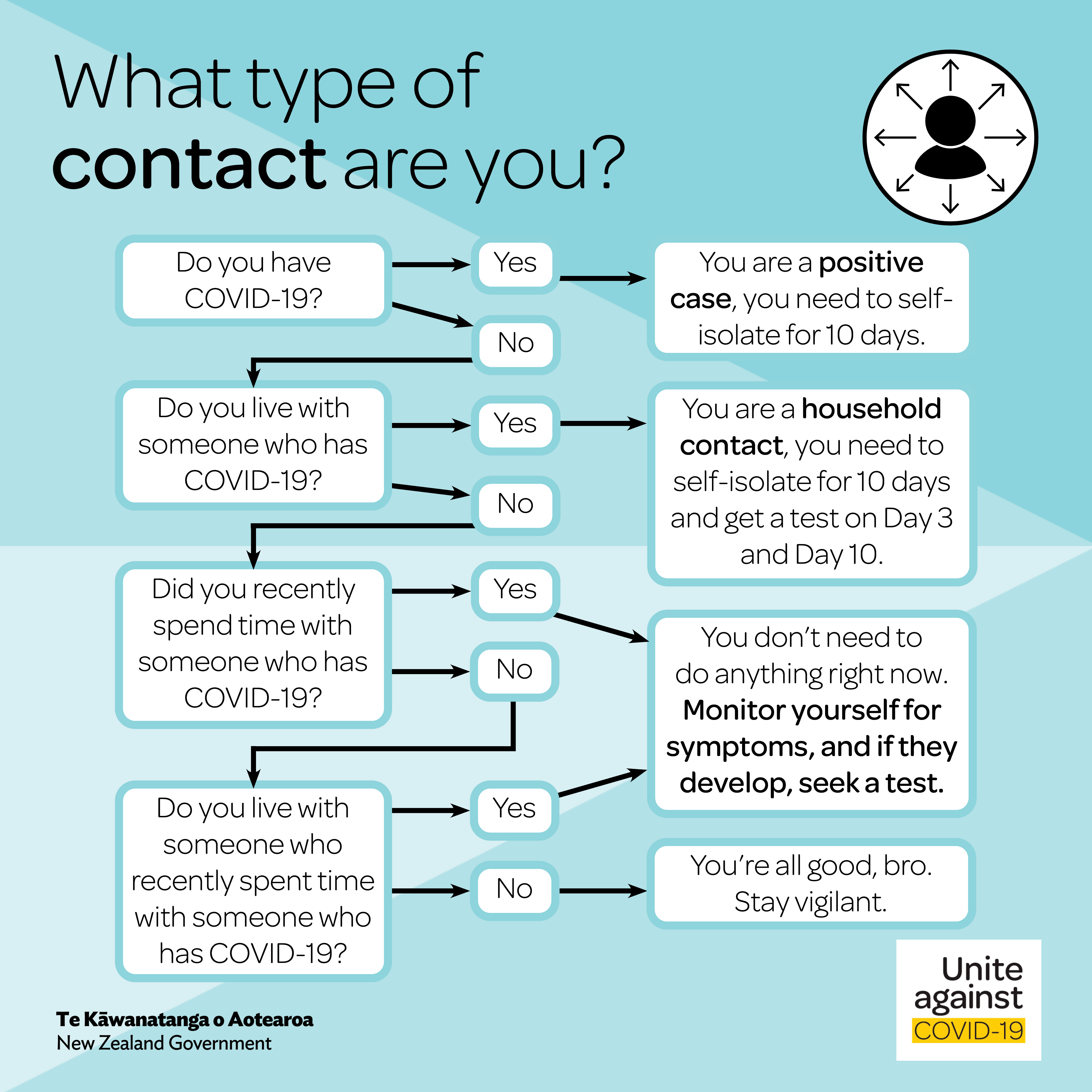
If you’re caring for a sick infant or child you won’t be able to stay away from them in the home but try to keep others at least two metres away. You will all need to say home for at least 10 days, unless it is to seek urgent medical help, or there is a critical worker (special conditions apply – find out more here).
While wearing gloves, clean and disinfect regularly touched areas. Open doors and windows to keep your home as well ventilated as possible. Wash your hands regularly and wear a mask whenever you are near the unwell child. If they are comfortable wearing a mask definitely encourage them to do so while around others.
As much as possible, try not to prepare food for anyone other than your sick child. Stay away from others in your family as much as possible.
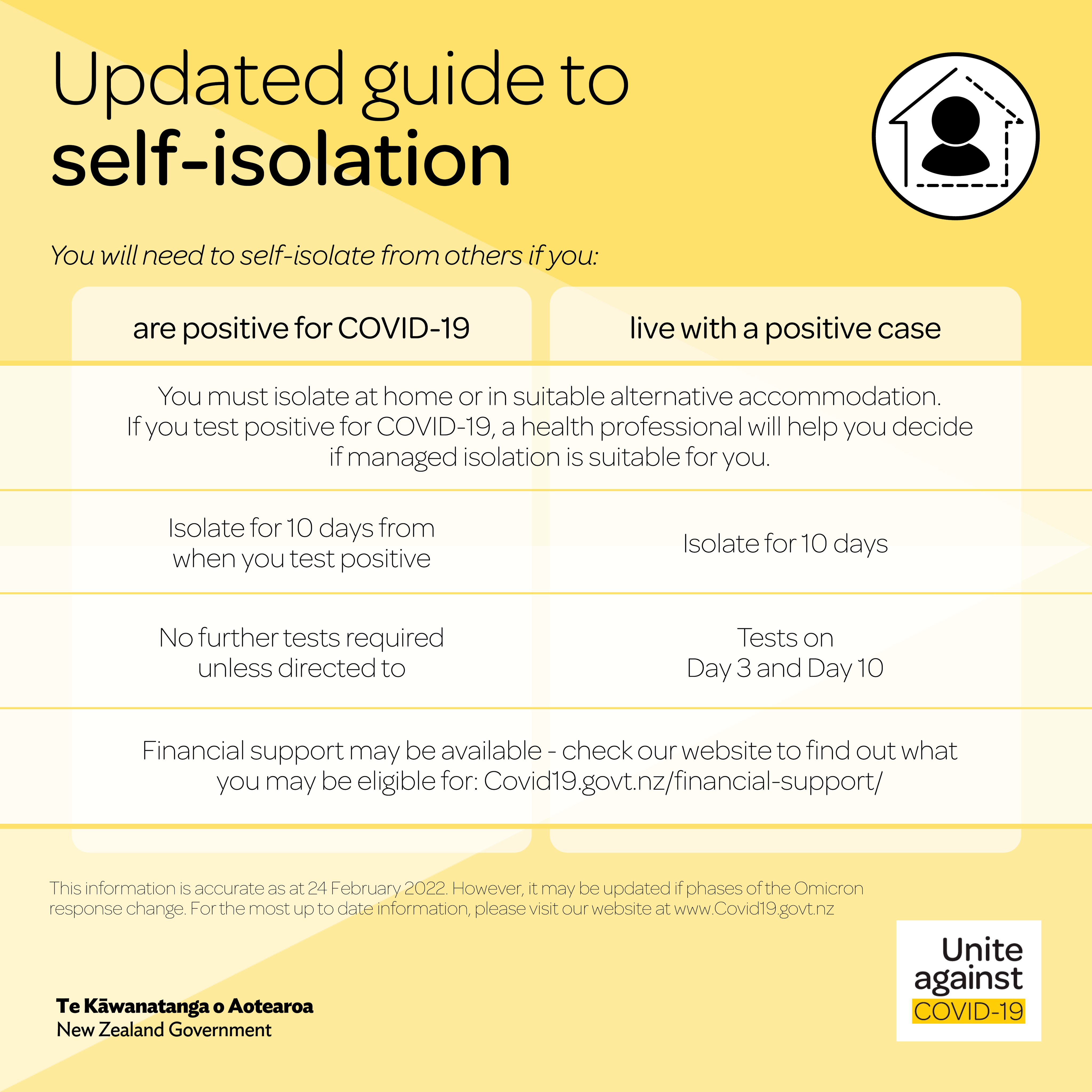
Look after you
It’s important that you look after yourself too. Because you’re living with someone who is COVID-19 positive, you will need to be tested on day 3 and day 10 of your household’s isolation. Talk with your healthcare provider about arranging those tests or call Healthline on 0800 358 5453.
Try to make sure you get enough food, liquids, and sleep.
If you’re feeling anxious, sad, lonely, or confused, reach out to someone you trust – or connect with any of the services below:
- text or call 1737 to talk to a trained counsellor 24/7
- call Healthline on 0800 358 5453
- call Lifeline on 0800 543 345 or text HELP (4357) to talk to a trained counsellor
- call Samaritans on 0800 726 666 for someone who will listen
- call Depression Helpline on 0800 111 757 or text 4202 to talk to a trained counsellor
The COVID welfare phone line on 0800 512 337 can help you with financial support options – it’s open 8am–8pm, seven days a week.
For the latest information from the Ministry of Health, visit covid19.govt.nz.
Although we make every effort to ensure the information we provide is accurate and up-to-date, the information contained in this website is not intended and must not be taken to be the provision or practise of medical advice or services nor a substitute for medical advice, diagnosis or treatment. If you have questions, concerns about your health or treatment or would like more information, contact your doctor. Always see your doctor or another qualified health professional before starting or changing any treatment.
See more:
 Written by Robyn
Written by Robyn
Robyn creates content on Kidspot NZ. Her hobbies include buying cleaning products and wondering why things don’t then clean themselves, eating cheese scones with her friends, and taking her kids to appointments.
Favourite motto to live by: “This too will pass.”

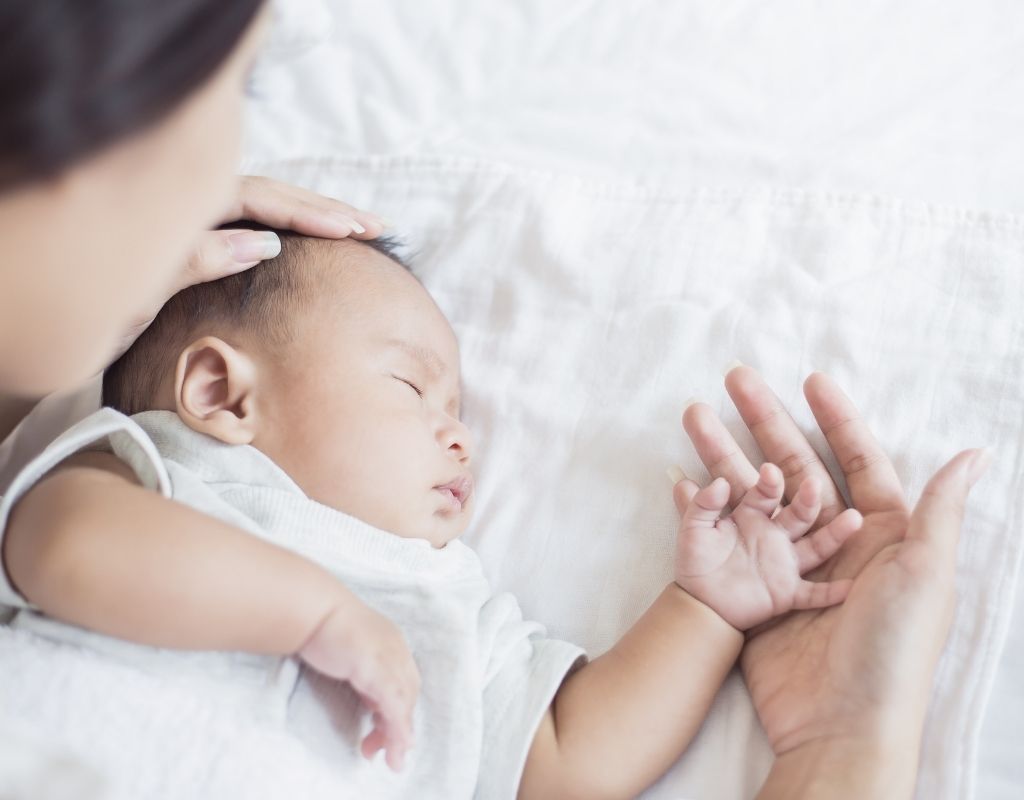
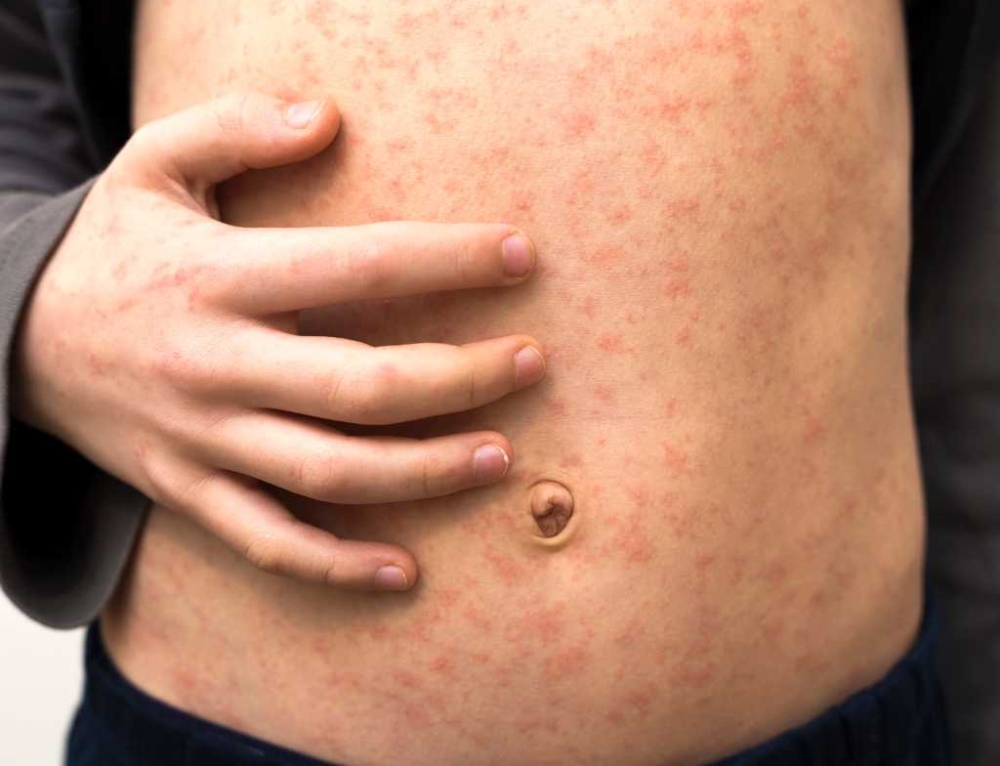

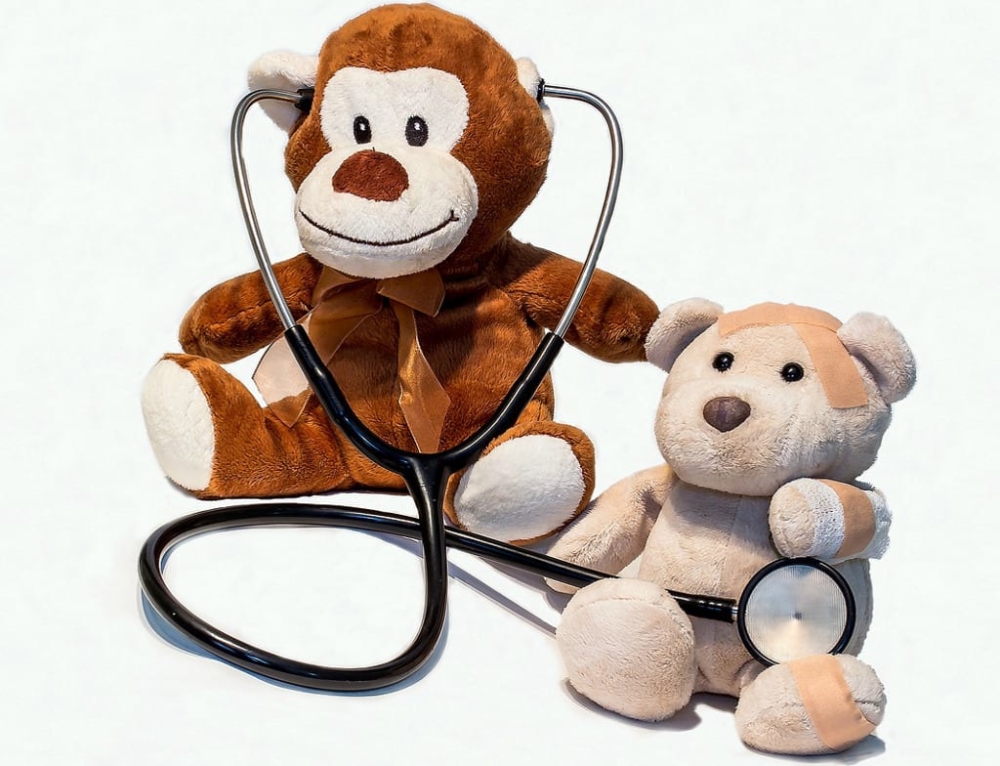
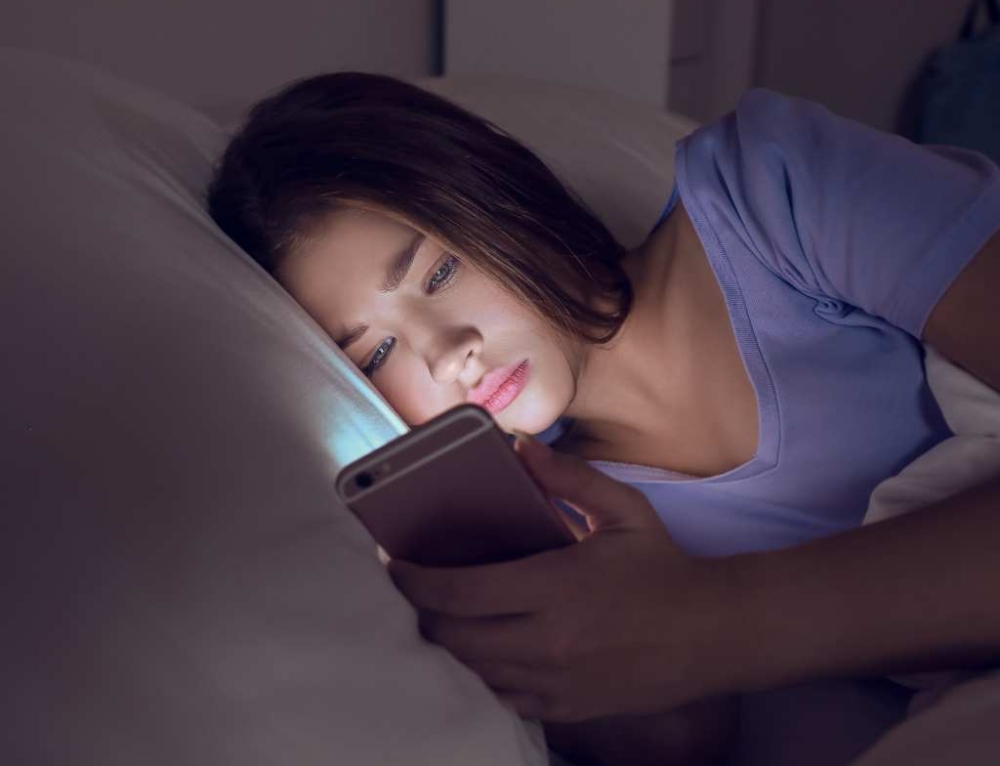

Leave A Comment
You must be logged in to post a comment.